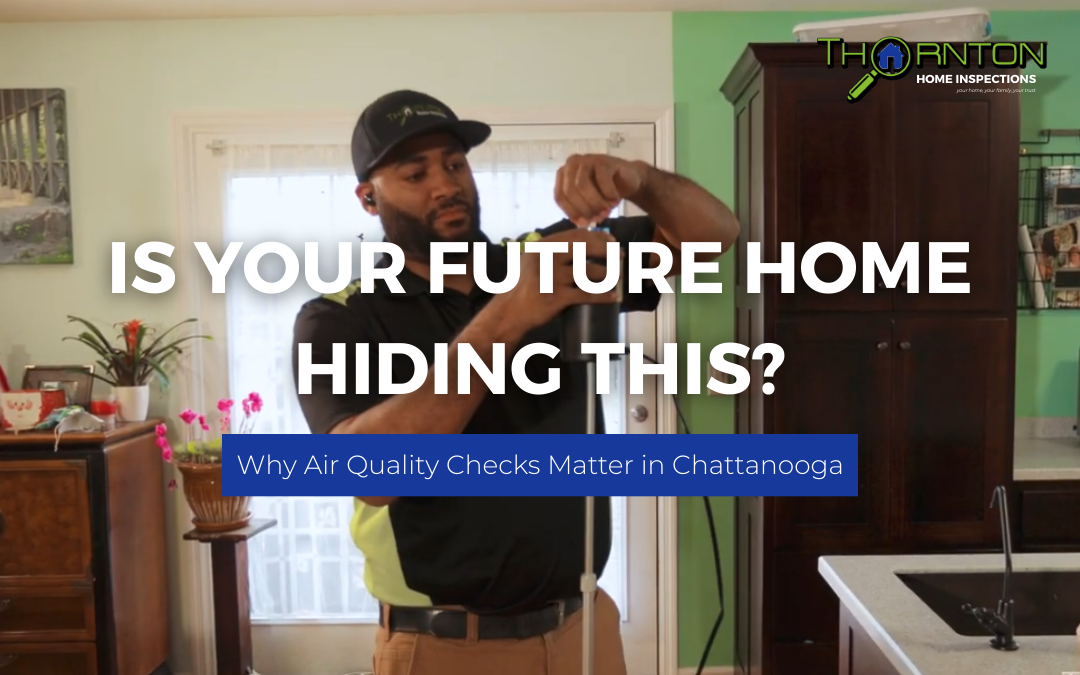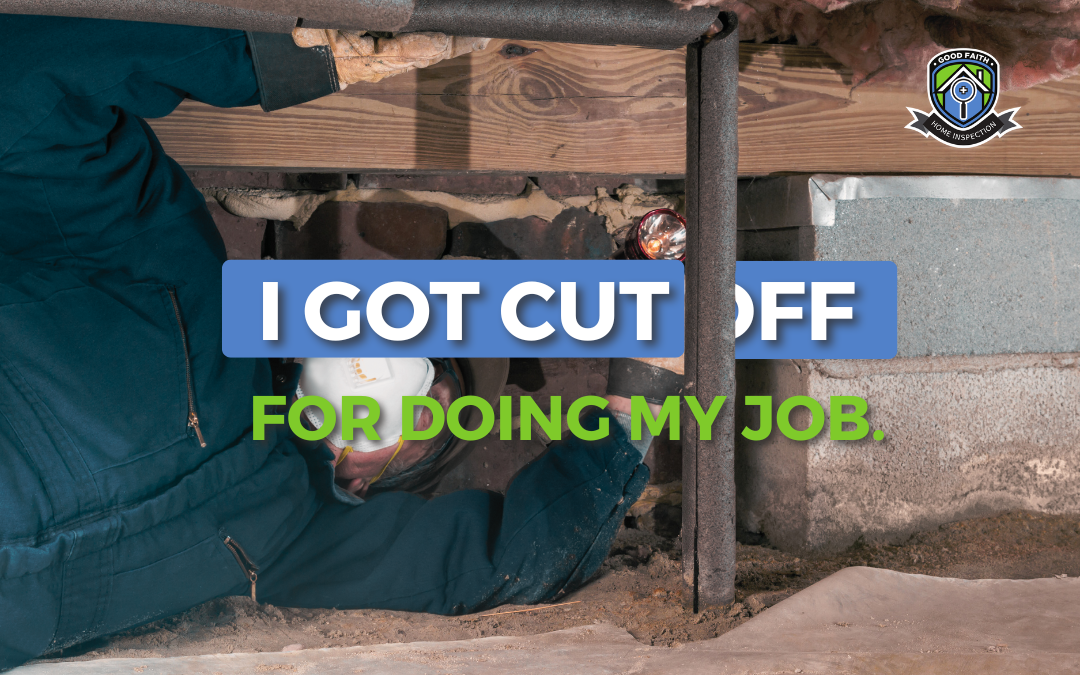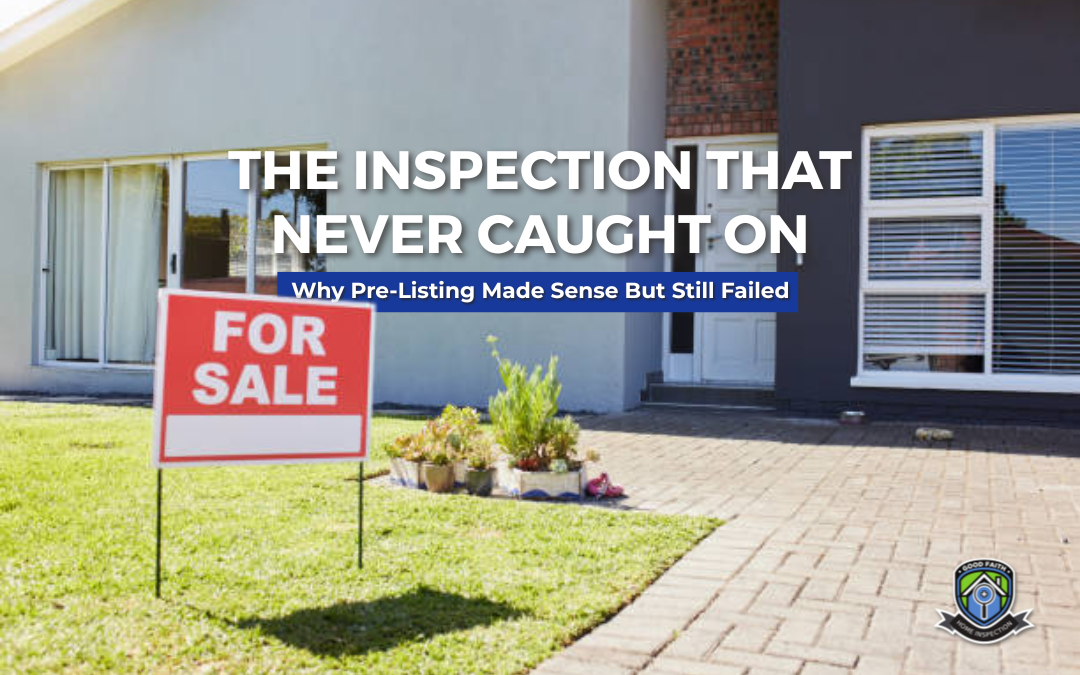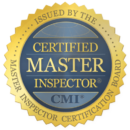
by Desmond Thornton | Sep 13, 2025 | Home Inspections, Informational Material
Why Home Inspection Reports Can Derail Sales
It’s one of the most frustrating truths in real estate: deals fall apart after the inspection.
According to Redfin, nearly 15% of pending home sales fell through in May 2025—the highest cancellation rate ever recorded for that month. A Business Insider analysis found the same pattern in July: over 15% of purchase agreements collapsed, the highest level since 2017.
Yes, mortgage rates and affordability pressures are part of the story. But in many cases, the real deal-breaker is the home inspection report.
Here’s the problem: buyers make offers in the dark. Then the inspection reveals costly repairs, outdated systems, or hidden risks. Excitement quickly turns into hesitation, often ending in withdrawal. The result? Weeks of wasted time, broken contracts, and lost trust.
The Limits of Traditional Pre-Listing Inspections
Some sellers and builders try to get ahead by ordering pre-listing inspections. But these come with built-in flaws:
- The seller sees the report, which makes buyers doubt its neutrality.
- Most buyers still order their own inspection, adding redundancy, delays, and extra cost.
- Sellers resent paying inspection fees upfront, with no guarantee of recovery.
Instead of creating clarity, the old model creates more questions than answers.
How the Good Faith Inspection Program Builds Buyer Trust
The Good Faith Inspection Program (GFIP) reimagines how inspection data is delivered. Instead of hiding behind fine print or pushing costs forward, GFIP puts truth first:
- Inspection First, No Upfront Cost: Homes are inspected before they hit the market. Builders and sellers pay nothing upfront.
- Buyer Access via QR Code: A sign at the property lets buyers scan and instantly purchase the discounted inspection report.
- Refund Option for Sellers: If three or more buyers buy the report, the seller is refunded in full.
- No Report Sharing with Seller or Builder: The inspector’s findings go directly to buyers—ensuring objectivity and transparency.
This approach transforms the home inspection report from a deal-breaker into a deal-builder.
Who Benefits from Transparent Inspections?
For Buyers
- Review the inspection report before making an offer
- Avoid costly surprises after signing
- Negotiate with confidence.
For Sellers & Builders
- Protect reputation with full transparency
- Reduce deal fallout and lowball offers.
- Pay nothing upfront—and possibly nothing at all.
For Agents
- Spend less time rescuing contracts.
- Present cleaner, stronger offers.
- Position yourself as a consumer-first advisor.
The Future of Real Estate Transactions: Truth Over Trust
In today’s market, promises aren’t enough. Buyers don’t want fine print—they want proof.
A home inspection report shouldn’t arrive as a shock weeks into the process. It should be the foundation of informed, confident negotiations. The Good Faith Inspection Program makes that shift possible by delivering unbiased data to buyers first.
Truth builds stronger deals. GFIP makes it possible.

by Desmond Thornton | Aug 29, 2025 | Home Inspections, Informational Material
When buying a home in Chattanooga, most buyers focus on the obvious inspection points — the roof, foundation, plumbing, and electrical systems. But one area often overlooked is the air you’ll be breathing once you move in. An air quality check in home is an optional add-on to a standard inspection that can uncover hidden risks and give you confidence in your purchase.
What Is an Air Quality Test?
An air quality test evaluates the indoor environment for pollutants that aren’t always visible. Inspectors may take samples of air and surfaces to detect common issues like:
Mold spores — often linked to moisture problems.
Volatile Organic Compounds (VOCs) — chemicals released from building materials, paints, or cleaning products.
Radon — a naturally occurring radioactive gas known to increase cancer risks.
Pollen and allergens — common in Chattanooga due to high seasonal pollen counts.
The goal of testing is to identify contaminants that could impact your family’s health before you finalize your purchase.
Why It Matters in Chattanooga
Chattanooga’s environment brings unique air quality concerns. The city is in a valley, which can trap air pollutants, and it ranks high nationally for pollen and seasonal allergies. High humidity levels also increase the risk of mold growth in basements, crawlspaces, and poorly ventilated homes. According to the EPA, Tennessee is considered a zone of concern for radon, making testing particularly valuable in this region.
By including an air quality check in home during your inspection, you can detect issues tied specifically to Chattanooga’s climate and geography.
When Should Buyers Consider It?
Not every buyer will need an air quality test, but it’s especially useful if:
- You or your family members have asthma, allergies, or respiratory sensitivities.
- The home has a history of flooding, water damage, or musty odors.
- The property is older and may have outdated materials.
- You want extra assurance about the long-term livability of the space.
While a standard home inspection covers visible defects, it cannot confirm what’s in the air. An air quality check in home fills that gap.
How the Process Works
Air quality testing usually involves placing monitoring equipment inside the home or collecting samples for lab analysis. The results can take anywhere from 24 hours to a few days, depending on the type of test. Your inspector will provide a report detailing the findings and possible next steps, such as remediation if elevated mold spores or radon are detected.
Key Takeaway
For Chattanooga homebuyers, an air quality check in home provides peace of mind that goes beyond the basics of a standard inspection. With the region’s unique challenges—pollen, humidity, and radon exposure—this optional step can reveal hidden risks and help ensure your new home is safe and comfortable for years to come.

by Desmond Thornton | Jul 15, 2025 | Home Inspections, Informational Material
When you buy a home, you’re told you’re “covered.” But what happens when you’re not? This is the truth behind what too many homeowners discover too late: coverage is a concept, not a guarantee.
This is not just a story about insurance. It’s a mirror held up to a system built more to protect itself than the people who fund it. And it begins with a collapse.
The Collapse That Started It All
A friend called me about a collapsed front porch. Not from a storm. Not from an earthquake. From time.
The home was built in 1999. The porch was load-bearing—supporting the front structural wall of the home. But the blocks beneath it were turned horizontally, cores facing out. That orientation is structurally incorrect. These CMUs (cinder blocks) were designed to carry load vertically. Laying them sideways created a ticking time bomb.
Add to that: there was no proper footer or support wall. The slab floated, unsupported, for over two decades. And beneath it? Construction debris. Trapped moisture. Hidden weakness.
Eventually, the inevitable happened. It cracked. It sagged. It fell.
The homeowner had no idea this space existed. The area was sealed off during the original build. It wasn’t visible, even to a home inspector.
He filed an insurance claim. The first answer was no. The second was: prove it.
He brought in someone. Then someone else. Eventually, the issue got escalated high enough to be considered for full replacement. And only then did I get involved—advising a structural engineer be brought in immediately.
What the Evidence Shows
Structural Misuse of CMU (Cinder Blocks)
The blocks were laid horizontally (cores facing out), which is incorrect for load-bearing support. This reduces their ability to distribute weight and makes them prone to failure over time—especially with no reinforcement.
Lack of Footer or Substructure Support
There was no visible evidence of a proper footing or secondary support wall beneath the slab. A floating slab without support will shift, sink, or fail entirely. That’s exactly what happened.
Concealed Construction Debris
The void beneath the slab was filled with leftover debris from the original construction—a moisture trap that led to rot, fungus, and accelerated material failure.
Brick Veneer Separation
Photos showed bulging and shear cracking of the brick veneer—a clear indicator of differential settlement and structural instability.
Insurance: Designed for Delay?
Here’s what makes this worse: this homeowner had paid for insurance, faithfully. He had never made a claim. But when the need finally came, he had to jump through hoops just to be heard.
This isn’t rare. It’s increasingly the norm.
The system seems designed for denial first. Delay second. Maybe payout third. Maybe.
“We think we’re paying for protection, but often we’re just funding someone else’s risk calculations.”
What if you had put that same money in a personal account? Let it gain interest? Let it serve you, not someone else’s shareholders?
That’s not insurance. That’s financial clarity. But most people aren’t taught that option exists.
The Real Game: Be the House
When I first heard the phrase “be the house,” I thought of casinos. The house always wins.
And then I realized: that’s insurance. That’s why they litigate. Stall. Obfuscate. It isn’t personal. It’s probability. The system is rigged to favor the one setting the rules.
If you aren’t the house, you’re the bet.
“If you’re not the house, you lose.”
That doesn’t mean everyone working in insurance is corrupt. But it does mean the system itself isn’t built to say yes easily. And that needs to change.
Final Thoughts
This isn’t about blame. It’s about awareness. The collapse of that porch wasn’t caused by bad luck. It was caused by a series of shortcuts, cover-ups, and blind spots that eventually reached their limit.
Insurance failed. Construction failed. Visibility failed.
And that failure could have been deadly.
So what’s the solution?
Better construction oversight.
Structural transparency.
A new consumer model of accountability.
This is just the beginning of Consumer Clarity. And we’re just getting started.
Next Up: Home Warranties: The Promises That Expire Before the Appliance Does.

by Desmond Thornton | Jul 8, 2025 | Home Inspections
They didn’t expect it to work.
Not like this.
The sign went in the yard like any other. A clean, white QR code anchored to the ground, standing tall in front of a modest 3-bed, 2-bath.
Listing #1.
Nothing flashy. No major upgrades. Just a solid home, priced fairly.
Within 48 hours, three different buyers scanned the sign, viewed the landing page, and purchased the inspection report.
Two submitted offers. One walked away after seeing the HVAC was at the end of its life.
That information didn’t scare the others. It helped them structure better offers. And when the sellers accepted the highest bid, the buyer knew exactly what they were getting into.
No surprises. No re-negotiation. No awkward calls asking, “Why didn’t you catch this?”
The seller never paid a dime for the inspection.
The sign paid for itself.
Listing #2 told a different story.
The home had charm, but it also had some issues in the crawl space. Nothing catastrophic. But enough that only two buyers purchased the report.
Because the minimum number wasn’t met, the seller covered the inspection fee. But they didn’t see it as a loss.
They saw it as protection.
Neither of the two buyers backed out. One was grateful to know what they were walking into and adjusted their offer accordingly. The seller accepted, knowing they wouldn’t be asked for unexpected concessions weeks later. The other buyer didn’t offer, but left a positive review about the transparency.
The listing agent used the success of the sign in their next listing presentation.
That seller said yes before they even finished the pitch.
One builder decided to test it.
New construction. 2,100 square feet. Fresh paint. Stainless appliances. But the crawl space had moisture signs the municipality inspector missed.
So he called us.
We did a full Good Faith Inspection, and the builder purchased the report himself through the QR code to access it.
Then he got to work.
He fixed the grading. Repaired flashing. Added ventilation. Everything was rechecked, rephotographed, and added to the report.
When buyers scanned the sign, they didn’t just see issues.
They saw a builder who cared enough to fix them.
The first buyer said yes. The home closed in 12 days.
But not everyone saw the opportunity.
Another buyer scanned the sign. Loved the house. Loved the idea of knowing what they were getting.
But her agent didn’t see it that way.
“You don’t need to pay for that,” they said. “Let’s wait until we’re under contract. Then we’ll get it inspected.”
She hesitated—but trusted them.
It was a pretty house. The one with the porch she imagined her son swinging on. The one close to her new job. The one she couldn’t stop picturing herself in.
But she waited.
A week later, she checked again—ready to buy the report and write the offer.
Gone.
Under contract.
Someone else had seen the inspection. Someone else made the offer. Someone else got the keys.
And she was left not just without the house—but with a new feeling:
Regret, dressed as silence.
Because sometimes the loudest mistake… is the one you don’t make in time.
The Agent in the Middle
We’ve seen it more than once: a buyer wants to purchase the report. Their agent talks them out of it.
Then a second home shows up.
Similar price. Similar layout. But this one’s already under contract.
The buyer gets frustrated. “Why didn’t we move faster?”
The agent is caught between protocol and progress. Between tradition and transparency.
And somewhere in that tension, the Good Faith Inspection Program does its quiet work:
It reveals who’s ready for the future—and who’s still clinging to the past.
In the End, the Good Faith Inspection Program Doesn’t Just Help Buyers
It helps sellers show strength. It helps agents build trust. It helps builders demonstrate quality. It helps inspectors do the job they were trained to do—without compromise.
But most importantly?
It helps the right people make the right moves at the right time.
Because when you tell the truth first, you don’t have to spin it later.
And the market doesn’t just notice.
It responds.

by Desmond Thornton | Jul 1, 2025 | Home Inspections
There’s something they never tell you when you start a business in the real estate industry:
If you tell the truth too clearly, too consistently, or too unapologetically, you’ll pay for it.
I’m not talking about mistakes. I’m not talking about being wrong. I’m talking about the price of being right, and saying it out loud.
I’m a home inspector. That means my job is to uncover what others can’t see—or won’t admit.
Over the last 12+ years, I’ve learned something hard and undeniable: This industry doesn’t reward thoroughness. It punishes it.
I Didn’t Lose Business Because I Was Incompetent. I Lost It Because I Told the Truth.
Let’s call this what it is: a culture of suppression. Not openly, not in writing, but in real time and in subtle sabotage.
I’ve been boycotted. I’ve had agents throw away my marketing the moment I walked out the door. I’ve had gatekeepers block me at front desks. I’ve had agents smile at my face, take my cards, and never once use me, not because of my quality, but because I was too “picky.”
You know what “picky” really means?
It means I caught something they didn’t want to deal with. It means I told the truth before they had a chance to spin it. It means I didn’t let a broken HVAC or a cracked foundation slide just to keep a deal moving.
And for that, I became a threat.
The Gatekeepers and Their Gatekeepers
This industry doesn’t just have one level of protection. It has layers.
The receptionist who throws your cards away. The agent who keeps you off their “preferred list.” The broker who sets up pay-to-play relationships.
I’ve been told, implicitly and explicitly: if you want consistent referrals, you better play the game.
Smile more. Write less. Say it gently. Don’t be so clear. Don’t disrupt the sale.
But if I have to water down the truth to be accepted, I’m not interested in playing.
I was raised differently. My grandmother taught me to treat people right, no matter their color, income, lifestyle, or circumstance.
You know what treating people right looks like in real estate? Telling them the whole truth before they spend hundreds of thousands of dollars on what might be a trap.
But the system doesn’t want that.
It wants illusion. Smooth closings. Fast commissions. No questions.
The Ethical Mask
The real estate industry wears ethics like a badge. But I’ve called the state before. I’ve asked, “Is this legal? Is this right?”
And every time the answer came back:
Well, based on the wording… it checks out.
Wording.
Not character. Not conscience. Not truth.
Just words arranged to look like integrity.
Meanwhile, the buyer is under pressure. The seller is confused. And the inspector is standing in the middle, holding the only truth that nobody wants to hear.
And sometimes that truth gets you sued. Or threatened. Or cut out.
All for doing the job they hired you to do.
These Aren’t Hypotheticals. These Are My Stories.
Some inspectors wouldn’t dare say this out loud—because honestly, this could be career suicide.
One time, we were hired for an inspection. The buyer did everything right: researched us, scheduled, and confirmed. We sent the standard notice to both agents, letting them know we’d be on-site, and to please make sure we had access to the crawlspace, attic, and panel.
Then we got a call from the buyer: confused, frustrated. The listing agent had said the seller refused to allow me—specifically—to inspect the property.
But the seller didn’t know me. They had no contact from us. The only possible source of that information? The listing agent. And this wasn’t the first time this agent had done this.
I took it to the state. Because buyers are supposed to have freedom to choose their inspector. But in that moment, the truth wasn’t allowed in. And I lost the job.
Another time, after conducting an inspection, the seller (or their agent) called us, angry. They wanted to know why we said such “bad things that weren’t true” about their home.
But it’s not their report. It belongs to the buyer. Legally and ethically, we can’t discuss anything unless the buyer gives us permission.
I calmly explained that. They pushed. They demanded. They threatened. I refused.
I got a one-star review for doing the right thing.
Another scenario? We finish an inspection, the buyer walks away, and a new potential buyer comes through their agent asking if they can have the report.
Again no permission, no sharing. The law is clear. But I’ve watched inspectors across the country break that rule under pressure—and set themselves up for lawsuits just to stay in the good graces of an agent.
This system makes it easy to do the wrong thing. It punishes you when you don’t.
So I stopped playing. I kept inspecting. I kept telling the truth.
And if that means being boycotted?
Let them.
Because I’d rather be boycotted for telling the truth than celebrated for protecting a lie.
And if you’ve ever been punished for doing the right thing, know this: you’re not alone either.
Coming Soon in Part 6: The Good Faith Test. When Truth Becomes the Advantage!

by Desmond Thornton | Jun 16, 2025 | Home Inspections
Why Pre-Listing Made Sense But Still Failed
The Market Mismatch: Buyers Choke, Sellers Stall
We live in a real estate world ruled by one unstable king: the interest rate. It rises, it dips, it shifts day by day—pulling the buying power of everyday people up and down like a yo-yo.
One week you’re qualified. The next week you’re not. On Monday, you shop confidently. By Friday, you’re second-guessing everything.
This market doesn’t encourage pause. It doesn’t reward strategy. It pressures buyers into knee-jerk decisions driven by fear and limited options. And in that pressure cooker, buyers often skip the one thing they need most:
Clarity before commitment.
Pre-Listing Inspections: The Simple Solution That Never Took Root
On paper, a pre-listing inspection seems like the answer:
The seller gets ahead of the issues.
The buyer walks in with eyes wide open.
The buyer walks in with eyes wide open.
But it never caught on. Why?
Pre-listing inspections didn’t fail because they were wrong. They failed because the system never wanted them to succeed.
The Real Reasons Pre-Listing Inspections Never Became Standard
Let’s name them, clearly and unapologetically:
Reason #1: Sellers Don’t Want to Know the Truth
Once they know, they must disclose. And that means giving up leverage, facing repairs, or losing negotiating power.
Many sellers choose plausible deniability over transparent responsibility.
“I’d rather not know what’s wrong, so I’m not required to say.”
Reason #2: Sellers Don’t Want to Pay for a Report That Helps Someone Else
Sellers see the inspection as a buyer benefit. So they don’t want to spend $500–$600 to “do someone else’s homework.”
If the deal falls through, it feels like wasted money.
“Why would I pay to tell them what’s wrong with my house?”
Reason #3: Listing Agents Are Trained to Avoid It
Many agents are taught: control the deal by controlling the timing. That means don’t invite inspections until you’re under contract.
They worry that upfront findings could:
- Kill momentum
- Lower offers
- Increase liability
“Let’s wait to see what happens before we inspect anything.”
But this mindset is deeper than just caution; it’s control. Some agents go as far as to say they won’t allow buyers to purchase an inspection report until the property is under contract.
Think about that: buyers, who may fall in love with a property, are actively discouraged from getting critical information because the agent wants to protect the deal’s timing.
It’s not just risky, it’s reckless.
Instead of owning the truth, they bury it inside the timeline and gamble with everyone’s trust.
And on the other side? The seller is unwilling to do the homework, and the buyer is told they can’t. The result is a strategic stalemate built on fear.
The Fallout: Lawsuits, Distrust, and Broken Faith
What’s the result of this resistance to transparency?
Lawsuits against agents, inspectors, and sellers
Buyers are losing trust in everyone involved
Sellers confused and angry about last-minute repair demands
Agents stuck in a cycle of damage control
“The entire system was built on timing, not truth.”
“When your deal depends on what’s hidden instead of what’s known, you’re not in business, you’re in danger.”
Why Pre-Listing Inspections Will Never Fully Work
Even with all the logic, pre-listing inspections will never become standard because of one core reason:
The system was never built for truth; it was built for leverage.
Sellers don’t want to lose control.
Agents don’t want to increase liability.
The system doesn’t reward transparency.
It rewards speed, perception, and control of the narrative.
And that’s why, even in a market that’s dying for clarity,
pre-listing inspections remain optional, underutilized, and misunderstood.










